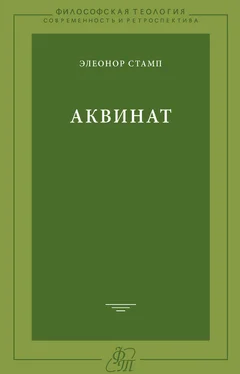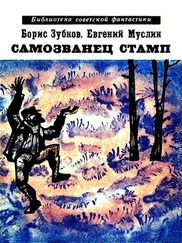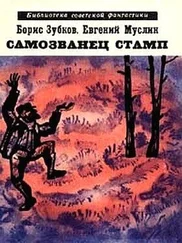Knuuttila, Simo (1993) Modalities in Medieval Philosophy (London: Routledge).
Korolec, J. (1981) “Free Will and Free Choice” in Norman Kretzmann, Anthony Kenny, Jan Pinborg (eds), assoc. ed. Eleonore Stump, Cambridge History of Later Medieval Philosophy (Cambridge: Cambridge University Press).
Kosman, L. A. (1984) “Being Properly Affected: Virtues and Feelings in Aristotle’s Ethics”, in Amélie Rorty (ed.), Essays on Aristotle’s Ethics (Berkeley, CA: University of California Press).
Kremer, Klaus (1971) Die neuplatonische Seinsphilosophie und ihre Wirkung auf Thomas von Aquin (Neoplatonist Metaphysics and Their Effect on Thomas Aquinas) (Leiden: E. J. Brill).
Kretzmann, Norman (1976) “Time Exists – But Hardly, or Obscurely (Physics iv, 10; 217b29–218a33)”, Aristotelian Society Supplementary Volume I: 91–114.
– (1981) “Sensus compositus, sensus divisus, and propositional attitudes”, Medioevo 7: 195–229.
– (1983a) “Goodness: Knowledge, and Indeterminacy in the Philosophy of Thomas Aquinas”, Journal of Philosophy 80: 631–649.
– (1983b) “Abraham, Isaac, and Euthyphro: God and the Basis of Morality”, in Donald Stump et al. (eds), Hamartia: The Concept of Error in the Western Tradition (New York and Toronto: The Edwin Mellen Press), pp. 27–50.
– (1984) “Nos Ipsi Principia Sumus: Boethius and the Basis of Contingency”, in Tamar Rudavsky (ed.), Divine Omniscience and Omnipotence in Medieval Philosophy (Dordrecht: D. Reidel), pp. 23–50.
– (1988a) “Lex iniusta non est lex: Laws on Trial in Aquinas’ Court of Conscience”, The American Journal of Jurisprudence 33: 99–122.
– (1988b) “Warring against the Law of My Mind: Aquinas on Romans 7”, in Thomas Morris (ed.), Philosophy and the Christian Faith (Notre Dame, IN: University of Notre Dame Press), pp. 172–195.
– (1988c) “God Among the Causes of Moral Evil: Hardening of Hearts and piritual Blinding”, Philosophical Topics 16: 189–214.
– (1992a) “Infallibility, Error, and Ignorance”, Canadian Journal of
Philosophy, supp. vol. 17: 159–194.
– (1992b) “Infallibility, Error, and Ignorance”, in Richard Bosley and Martin Tweedale (eds), Aristotle and His Medieval Interpreters, Canadian Journal of Philosophy, supplementary volume (Calgary: University of Calgary Press).
– (1993) “Philosophy of Mind”, in N. Kretzmann and E. Stump (eds), The Cambridge Companion to Aquinas (Cambridge: Cambridge University Press), pp. 128–159.
– (1997) The Metaphysics of Theism: Aquinas’s Natural Theology in summa contra gentiles I (Oxford: Clarendon Press).
– (1999) The Metaphysics of Creation: Aquinas’s Natural Theology in summa contra gentiles II (Oxford: Clarendon Press).
Kretzmann, Norman and Stump, Eleonore (eds) (1993) The Cambridge Companion to Aquinas (Cambridge: Cambridge University Press).
Kuksewicz, Zdzislaw (1982) “The Potential and the Agent Intellect”, and “Criticisms of Aristotelian Psychology and the Augustinian-Aristotelian Synthesis”, in Norman
Kretzmann, Anthony Kenny, Jan Pinborg (eds), assoc. ed., Eleonore Stump. The Cambridge History of Later Medieval Philosophy (Cambridge: Cambridge University Press), pp. 595–602 and 623–628.
LaCroix, Richard (1977) “Augustine on the Simplicity of God”, New Scholasticism 51: 453–469.
Lawler, Michael (1971) “Grace and Free Will in Justification: A Textual Study in Aquinas”, The Thomist 35: 601–630.
Leftow, Brian (1989) “The Roots of Eternity”, Religious Studies 24: 189–212.
– (1990a) “Aquinas on Time and Eternity”, American Catholic Philosophical Quarterly 64: 387–399.
– (1990b) “Boethius on Eternity”, History of Philosophy Quarterly 7: 123–142.
– (1991a) Time and Eternity (Ithaca, NY: Cornell University Press).
– (1991b) “Timelessness and Foreknowledge”, Philosophical Studies 63: 309–325.
– (1991c) “Eternity and Simultaneity”, Faith and Philosophy 8: 148–179.
– (1992) “Timelessness and Divine Experience”, Sophia 30: 43–53.
Lehrer, Keith (1990) Theory of Knowledge (Boulder, CO: Westview Press).
Leibniz, Gottfried (1969) “On the Radical Origination of Things”, trans. Leroy E. Loemker in Gottfried Wilhelm Leibniz, Philosophical Papers and Letters, 2nd edn (Dordrecht: D. Reidel), pp. 486–491.
Lewis, David (1986) “The Problem of Temporary Intrinsics”, in On the Plurality of Worlds (Oxford: Blackwell), reprinted in Peter van Inwagen and Dean Zimmerman (eds), Metaphysics: The Big Questions (Malden, MA: Blackwell, 1998), pp. 204–206.
Lifton, Robert Jay (1986) The Nazi Doctors (New York: Basic Books).
Lisska, Anthony J. (1996) Aquinas’s Theory of Natural Law. An Analytic Reconstruction (Oxford: Clarendon Press).
Lonergan, Bernard (1946) Grace and Freedom: Operative Grace in the Thought of St. Thomas Aquinas, J. P. Burns (ed.) (New York: Herder & Herder).
– (1967) Verbum: Word and Idea in Aquinas, David Burrell (ed.) (Notre Dame, IN: University of Notre Dame Press)
Lynn, William D. (1962) Christ’s Redemptive Merit: The Nature of its Causality According to St. Thomas. Analecta Gregoriana 115, Series Facultatis Theologicae (Rome: Gregorian University).
McCormack, Stephen (1944) “The Configuration of the Sacramental Character”, The Thomist 7: 458–491.
MacDonald, Scott (1984) “The Esse/Essentia Argument in Aquinas’ De ente et essentia”, Journal of the History of Philosophy 22: 157–172.
– (ed.) (1991a) Being and Goodness: The Concept of the Good in Metaphysics and Philosophical Theology (Ithaca, NY: Cornell University Press).
– (1991b) “Ultimate Ends in Practical Reasoning: Aquinas’ Aristotelian
Moral Psychology and Anscombe’s Fallacy”, The Philosophical Review 100: 31–66.
– (1993a) “Christian Faith”, in Eleonore Stump (ed.), Reasoned Faith (Ithaca, NY: Cornell University Press), pp. 42–69.
– (1993b) “Theory of Knowledge”, in Norman Kretzmann and Eleonore Stump (eds), The Cambridge Companion to Aquinas (Cambridge: Cambridge University Press), pp. 160–195.
MacDonald, Scott and Stump, Eleonore (eds) (1999) Aquinas’s Moral Theory. Essays in Honor of Norman Kretzmann (Ithaca, NY: Cornell University Press).
Macierowski, E. M. (1998) Thomas Aquinas’s Earliest Treatment of the Divine Essence. (Binghamton, NY: Center for Medieval and Renaissance Studies, Binghamton University).
McInerny, Ralph (1977) St. Thomas Aquinas (Boston: Twayne Publishers).
– (1981) Rhyme and Reason: St. Thomas and Modes of Discourse (Milwaukee: Marquette University Press).
– (1986) Being and Predication. Thomistic Interpretations, Studies in Philosophy and the History of Philosophy, vol. 16 (Washington, DC: Catholic University of America Press).
– (1990a) Boethius and Aquinas (Washington, DC: Catholic University of America Press).
– (1990b) A First Glance at St. Thomas Aquinas (Notre Dame, IN: University of Notre Dame Press).
– (1992) Aquinas on Human Action (Washington, DC: Catholic University of America Press).
– (1993a) Aquinas against the Averoists: On There Being Only One Intellect (West Lafayette, IN: Purdue University Press).
– (1993b) “Ethics”, in Norman Kretzmann and Eleonore Stump (eds), The Cambridge Companion to Aquinas (Cambridge: Cambridge University Press), pp. 196–216.
– (1996) Aquinas and Analogy (Washington, DC: Catholic University of America Press).
– (1997) Ethica Thomistica: The Moral Philosophy of Thomas Aquinas (Washington, DC: Catholic University of America Press).
McLaughlin, Brian (1992) “The Rise and Fall of British Emergentism”, in Ansgar Beckermann, Hans Flohr and Jaegwon Kim (eds), Emergence or Reduction? Essays on the Prospects of Nonreductive Physicalism (Berlin: Walter de Gruyter), pp. 49–93.
Читать дальше
Конец ознакомительного отрывка
Купить книгу











